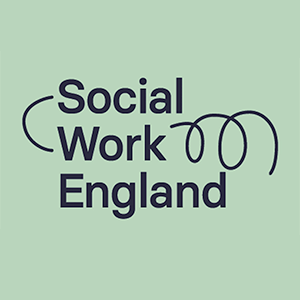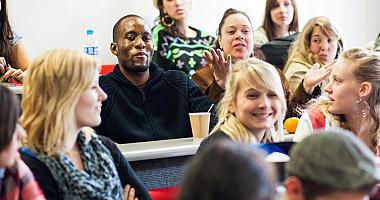Course information
Department
Length
2 years full-time
Scholarship information
Course overview
This Masters programme is ideal for graduates with relevant experience interested in pursuing a professional career in social work. You will receive an approved qualification, enabling you to register with Social Work England and work as a qualified professional social worker on completion of the programme.
Work with and learn from Experts By Experience
The MA Social Work is an academic and professional qualification which also provides a gateway to more specialist therapeutic qualifications and research degree programmes. Social work education at Goldsmiths has a long and distinguished record – we have one of the most respected social work units in the UK, and you'll be taught by established social work academics and associate lecturers who have considerable research and/or practice experience in their fields.
You will learn the values, skills, and knowledge needed to practise as a reflective and ethical social worker, and be well equipped for the challenges of contemporary social work practice. You also will be encouraged to make links between anti-oppressive practice, the social work values, the legal framework, theories, methods and skills of intervention, and social work practice throughout the programme. You will cover some of the following areas:
- human growth and development
- community needs and services
- social work methods and skills
- assessment in social work
- law and organisational contexts of social work
- research methods
- children and families pathway
- adults pathway
- mental health and disability
In the 2023 Guardian League Tables, our team was rated top in London for course quality and satisfaction.
Statutory and Non-Statutory Social Work placements
The Masters includes two practice placements in statutory and non-statutory settings and with different service user groups, so you'll be able to gain valuable real-world experience. Over 90% of all Social Work placements in 2019-20 were in statutory settings. We will encourage you to think deeply about human rights and social justice, and to embed these values in your practice. You will develop your skills for reflective and evidence-based practice and will be able to further your research mindedness.
Find a career after graduation
Over 95% of MA Social Work graduates at Goldsmiths go on to full-time graduate-level social work practice. Goldsmiths' social work programmes are highly regarded by potential employers in London, the South East of England, and nationally, and our alumni have an excellent record of securing employment. Past graduates have gone on to work in local authority children's services departments, adult services departments, and independent/voluntary sector agencies such as the NSPCC, Family Action and Mind.
As we were a founding member of the South East London Teaching Partnership initiative, we have established a fantastic programme where you will be jointly taught by practising social workers-teaching consultants. Depending on your profile, interests, and experience, you may also secure social work placements in local authority settings.
South East London Teaching Partnership
The Department of Social, Therapeutic and Community Studies (STaCS) at Goldsmiths is part of a formal teaching partnership with the Royal Borough of Greenwich, the London Borough of Southwark, and the London Borough of Lewisham for the delivery of social work education at Goldsmiths.
We were one of only four early adopter sites across the UK to receive government funding to develop and test new and innovative approaches to social work qualifying education, early career training, and continuing professional development programmes. This has allowed a number of social work practitioners from all levels within these Boroughs to be directly involved in the MA Social Work, delivering lectures, workshops, and seminars. This means that there is a very close relationship with practice to ensure that, by the end of the programme, students are equipped to deliver authoritative, compassionate relationship-based social work practice that makes a positive difference to people’s lives.
Contact the department
If you have specific questions about the degree, contact Siddhesh Mukerji.






